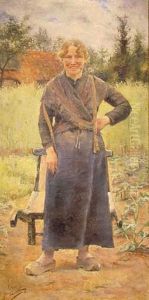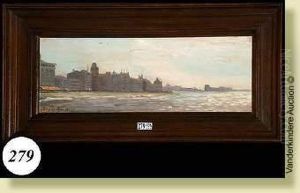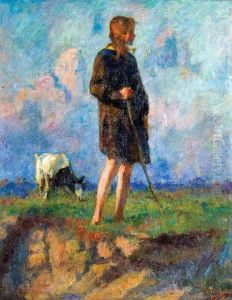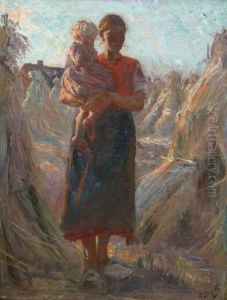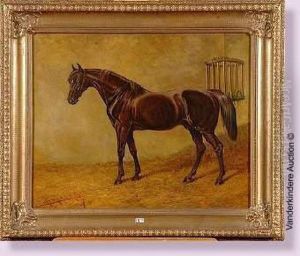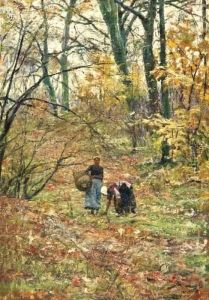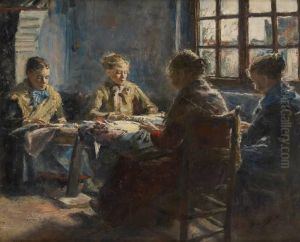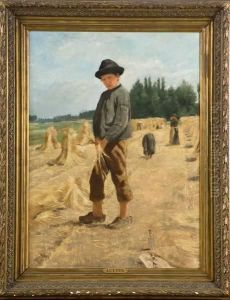Henri Jean Luyten Paintings
Henri Jean Luyten was a Belgian artist born on December 11, 1873, in Antwerp, Belgium. He was a prolific painter, engraver, and illustrator, whose works spanned a variety of styles and subjects throughout his career. Luyten's artistic journey began at a young age, influenced by the rich cultural heritage of his hometown, a city renowned for its artistic legacy, including the Baroque master Peter Paul Rubens.
Luyten received his formal art education at the Royal Academy of Fine Arts in Antwerp, where he was exposed to both the classical traditions of painting and the emerging modernist movements of the late 19th and early 20th centuries. This duality of influence is evident in his work, which often combines traditional techniques with innovative approaches to subject matter and composition.
Throughout his career, Luyten was known for his versatility. He produced landscapes, portraits, genre scenes, and historical paintings. His landscapes often depicted the Belgian countryside and seascapes, rendered with a sensitivity to light and atmosphere that recalls the work of the Impressionists. In his portraits and genre scenes, Luyten showed a keen observation of character and social interaction, often imbued with a sense of humor or satire.
In addition to his paintings, Luyten was an accomplished engraver and illustrator. He contributed illustrations to various publications and produced a significant body of graphic work that is celebrated for its technical skill and artistic quality.
Despite his achievements, Henri Jean Luyten remained relatively obscure outside of Belgium during his lifetime. However, his work has since gained recognition for its contribution to Belgian art and its reflection of the transitional period between traditional and modernist art movements. Luyten passed away on February 27, 1954, in Brasschaat, Belgium, leaving behind a diverse and rich body of work that continues to be studied and appreciated by art historians and collectors alike.
